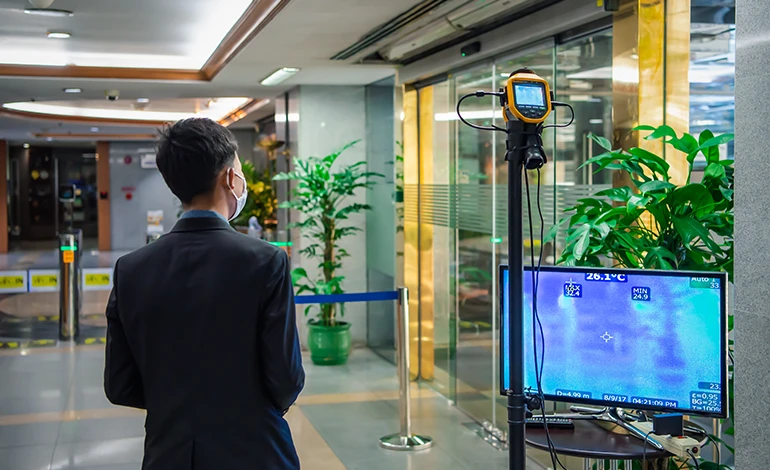While the COVID-19 pandemic policies are still being developed in the hotel industry, from around the world, guests will see big changes next time, when they check-in anywhere. Of course, guests will want to check-in and check-out without a key, with no direct contact.
Cleanliness is a major concern for many people. The American Hotel and Housing Association have issued industry-wide standards for safe housing, and many major hotel groups have defined new policies in light of this health crisis.
As the coronavirus continues to affect travel globally up to this point, it is important to monitor the industry outlook and trends that will ultimately shape the recovery strategy until hotels can rebound in travel demand.
Indeed, there are many hotels and resorts around the world that have begun to transform their facilities into safe havens, in terms of doing a radical re-furnishing, such as a complete change of carpets and curtains in their tourist facilities, and changing bed mattresses, covers and pillows, as well as being more careful not to be exposed to infection. Making adjustments to many devices, such as replacing the remote control of TVs, air conditioning and curtains through an application in the smart phone. And dispense with glass cups in rooms and bathrooms with replaceable plastic ones.
In the latest report by the Sitel Group, Chief Marketing Officer Martin Wilkinson-Brown wrote: “As we transition to the new normal as hotels reopen for business, the expectation of customer experience is higher than ever. From now on, the customer expects improved AI-powered tools not to mention the strict hygiene standards. He predicted that hotels that cater to these customers would win brand loyalty as they embrace the new normal in the long run.”
There will be a noticeable change in all the systems that are used in the hotel sector starting from simple things like wearing masks, hand sanitizing, and social distancing as new standards and distancing tactics while continuing to run the hotel sector and focusing on solutions whose primary focus is the principle of “contactless” starting from replacing paper-based restaurant menus within the hotel with scannable QR codes to contactless hotel check-in capabilities, room key cards, and paperless currency exchange, all orders and reservations are made via a private app.
With technology, every aspect of the hospitality can be accessed through the mobile devices of the guests, the technical systems that customers need are put in place to provide remote access starting from the reception point through Chabot or direct conversations with the staff through special systems, providing instant assistance to the guests no need to come face to face with hotel staff.
One of the most important products that have been used and will be developed in hotels during and after the pandemic period, the most accurate camera in the world that has been customized with new features designed specifically to help companies and hotels reopen their doors amid COVID-19 conditions. while wearing them, and helping to alert management when someone enters the building without them or wearing them improperly; A thermal camera feature was added, as telemetry protocols became a generally important practice in this era.
Besides, the customer can control all their room devices without touching via the hotel's own app, they can turn the TV on - off, control the curtains, lock and unlock the lights, and use UVC Ultra Sterilization technology that can be used safely, quickly and effectively to eliminate up to 99.9 percent of allergens Indoor surface and weather diseases, it is effective in large spaces around hotels, cruise ships, entertainment venues, spas, restaurants, stores, etc.
Location detection apps are now being developed, providing geolocations for hotels looking to build location-aware app experiences, especially as people increasingly choose road trips in the name of social distancing. The number of visitors in the place at the moment before they approach the place to help avoid high visitor densities.




